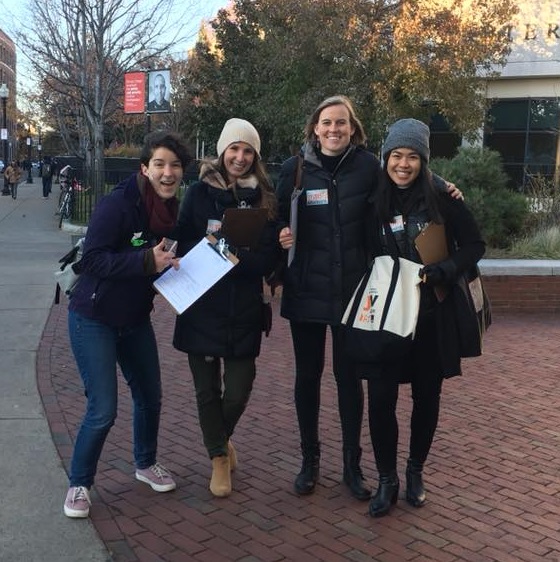Education and Childcare
YW Boston believes that investing in diversity, inclusion, and equity as a workforce starts with our education system. This system impacts our children and our childcare workers. The COVID-19 crisis has shone a harsh light on the existing inadequacies of access, availability, and quality childcare in our Commonwealth and city. This is an issue that disproportionately impacts women and women of color.
For our students, we know that girls of color are over-criminalized and suspended from school at a much higher rate than boys and white girls their same age. Studies show that young girls of color are perceived as older than their peers of the same age, and thus, they are treated in a way that disproportionately and unfairly punishes them. Ensuring this treatment does not continue is of paramount importance to the committee. We support the following state-wide legislation:
1) “Common Start Coalition” An Act providing affordable and accessible high-quality early education and care to promote child development and well-being and support the economy in the Commonwealth
2) “Campaign Funds for Childcare” An Act supporting parents running for public office
CIVIL RIGHTS AND RACIAL JUSTICE
Our mission of eliminating racism and empowering women demands a commitment to diverse and equitable leadership in our organizations and government. Additionally, we stand against discriminatory practices that oppress people of color, women, and women of color in the Commonwealth. This includes a commitment to voting rights and access, the prioritization of diverse leadership, and equity at all levels of government.
YW Boston will continue to support legislation and work with coalitions to address the systemic racism that permeates our educational and judicial systems as it relates to young girls and women of color. The intersectionality of gender and race is not effectively addressed in public policy, and COVID-19 has further exacerbated these disparities. The committee intends to support legislation around dismantling the school–to–prison pipeline, ending the overcriminalization of girls of color, police, and criminal justice reform, the student debt crisis and higher education access, and ensuring an equitable recovery from the COVID-19 pandemic. We support the following state-wide legislation:
1) “Public Bank Bill” An Act to Establish a Massachusetts Public Bank
2) “Campaign for Size Freedom” An Act prohibiting body size discrimination
3) “Baby Bonds” An Act Addressing the Racial Wealth Gap
Gender Equity
Part of YW Boston’s goals as an organization is to amplify the voices of those historically marginalized, which includes women, women of color, and those outside the binary spectrum. These voices, stories, leadership, and representation have been underutilized and discriminated against for many years. Massachusetts stands to benefit economically, socially, and justly by dismantling inequitable systems and uplifting those historically left behind.
1) “Wage Equity Now”
2) “The I AM Bill” An Act to increase access to disposable menstrual products in prisons, homeless shelters, and public schools H.2370
3) “Protected at Work” An Act Relative to Employment Protections for Victims of Abusive Behavior H.2370
Parity on Board
Parity on Board is a coalition created and led by YW Boston to support the passage of An Act to Promote Gender and Racial Diversity on Public Boards and Commissions in Massachusetts (H.3095 Reps. Shande & Nguyen /S.2029 Sens. Miranda and Lewis). Please visit www.parityonboard.org to learn more about our campaign to promote equitable leadership in Massachusetts.
You can take action to support any or all of these bills by reaching out to your state legislators. Click below to find their contact information.
Learn about our federal advocacy at YWCA USA
For questions regarding these policy priorities or the YW Boston Advocacy Committee, please reach out to Brianna Savage at BSavage@YWBoston.org or visit Advocacy | YW Boston


